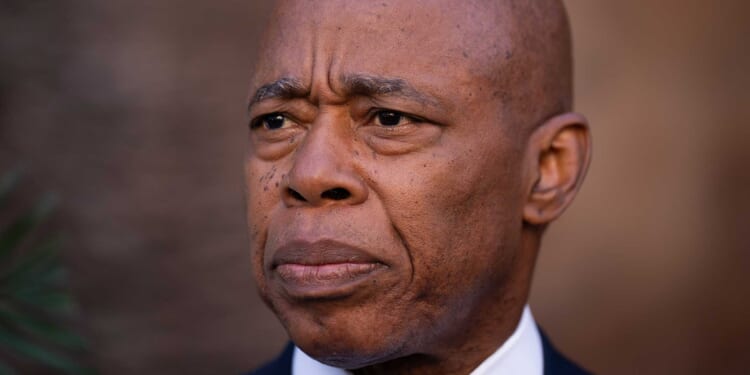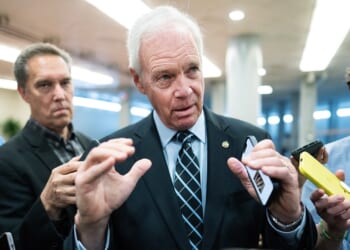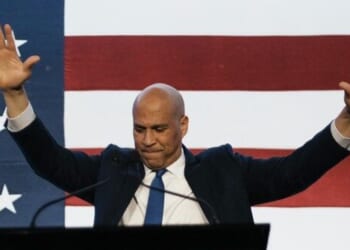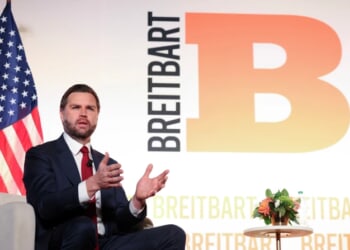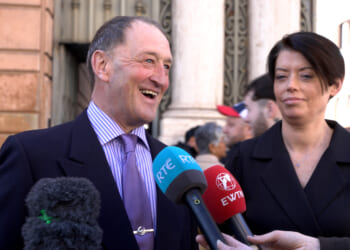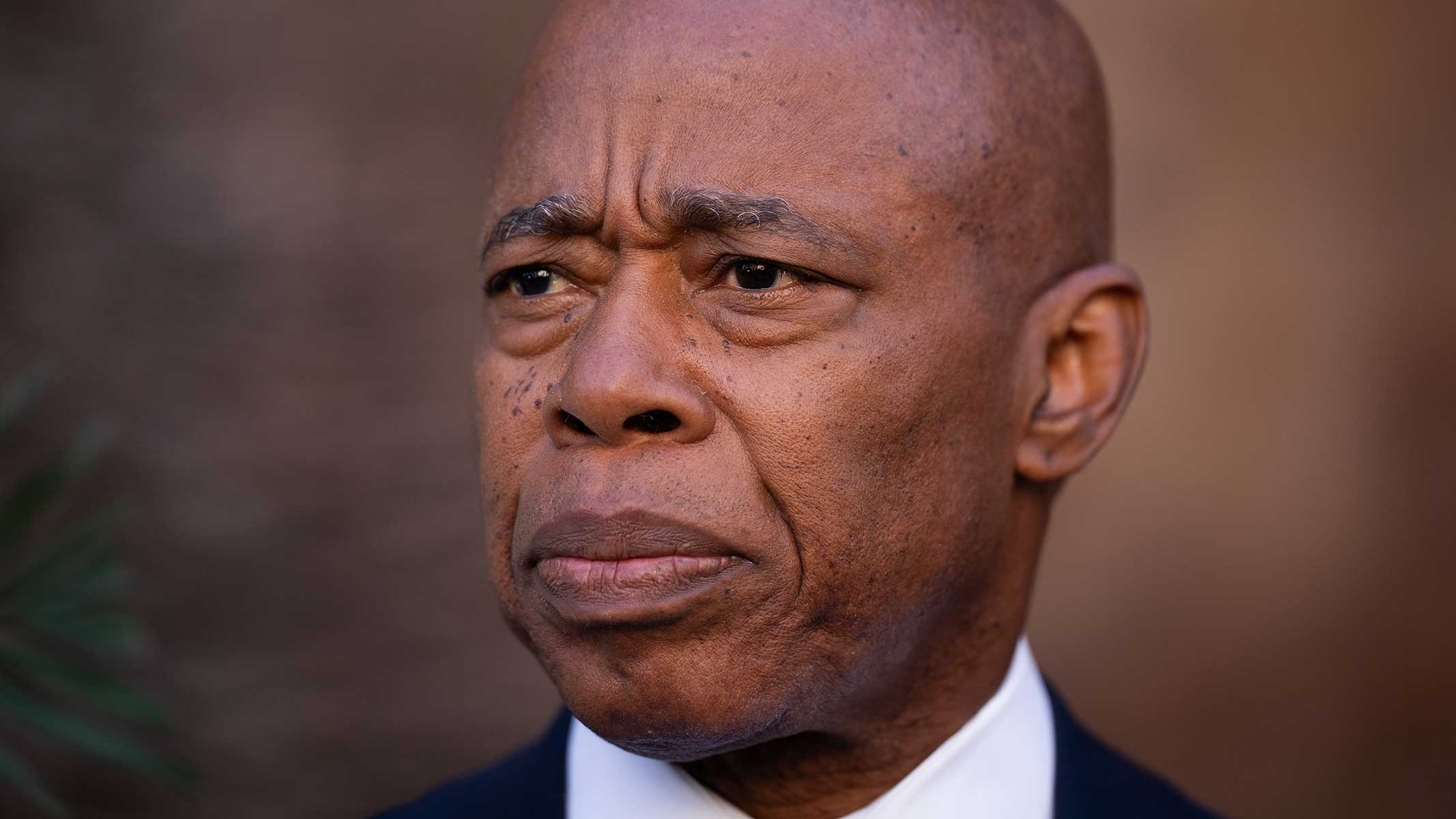
What does Eric Adams’s exit from the 2025 mayoral race mean for New York City’s political future? Rob Henderson, Nicole Gelinas, John Ketcham, and Rafael Mangual assess how the sitting mayor’s withdrawal reshapes the race for City Hall and analyze the strategies of remaining contenders Zohran Mamdani, Andrew Cuomo, and Curtis Sliwa. They discuss the key issues shaping voter priorities, from crime and public safety to housing affordability. They also explore the controversy surrounding the Democratic Socialists of America’s support for convicted cop killer Assata Shakur, who died on Thursday.
Audio Transcript
Rafael Mangual: Welcome to another episode of the City Journal Podcast. My name is Rafael Mangual and I’ll be your host for today. And I’m joined by my brilliant colleagues, John Ketcham, Rob Henderson and Nicole Gelinas. It is Monday morning in New York City, which means that we have a little bit of breaking news from over the weekend, which is that Mayor Eric Adams has officially announced his suspension of his mayor campaign, leaving Zohran Mamdani, Andrew Cuomo, Curtis Sliwa, the main players left in the field. I’d like to just start with what you all make of that. I mean, this is a pretty big deal, Nicole.
Nicole Gelinas: Yeah, it’s a big deal. It’s been a long time coming. Adams is pulling in the single digits actually behind the Republican candidate, Curtis Sliwa, which is a pretty big deal in such a heavily five, six to one Democratic city. And Adams has always been a weird person, but his principles, not necessarily his personal principles, as I’m sure will get into some of the corruption issues, but his public political principles that he ran and won on four years ago, reducing crime after the big crime spike that we saw in 2020 and 2021, reducing public disorder and pushing for personal and family responsibility. He spent much of his dropping out speech, thanking his mother for instilling values of personal responsibility. These are values that broadly the public holds. There’s a reason that Adams won four years ago. It’s just that he could never get out of his own way of very bad personal habits that he developed in a long time in Brooklyn politics and he could never execute these ideas. So he’s actually not that far away from what the public has long wanted. And the real question is him having failed to deliver that, did he leave a vacuum for something that comes next? And we don’t quite know what that is yet.
Rafael Mangual: Yeah. John, I want to get your take on this as well because you’re kind of a New York City politics expert. I think the main question that everyone’s grappling with right now is, does this make a difference? I think Zohran Mamdani came out yesterday and said very forcefully condemning Mayor Adams’s decision to drop out, sort of couching it as some kind of coordinated effort against him, which he might be right about. But is he though? I mean that presupposes that this is going to cause some major shift in the ultimate electoral outcome. What do you think?
John Ketcham: This is the most significant development since the late June primary, but it’s been remarkably quiet since then. If you had asked me back in late June right after the primary, how would the environment be? I would’ve thought that people would’ve gotten their act together in opposing Mamdani. There would be lots of moderates and institutional types with their hair on fire saying, we’ve got to stop this and we have to consolidate the opposition. Adams is doing that is the first step towards that. But it’s coming at a very late hour. We are less than a month away from early voting. It begins on October 25th. Adams is still on the ballot. He’s got to inform his supporters that he will no longer be an active participant in this election. Not a viable candidate, but some voters, small share voters will continue to support him on the ballot.
And then the question is, well, how much of a bump will Cuomo get? Right? Cuomo is probably going to be the primary beneficiary of this because he and Mayor Adams share, broadly speaking, similar moderate politics and policy and they share a common base of black and Hispanic voters. But even if Cuomo gets 10 percent of more support, as Nicole said, Adams was polling in the high single digits. So if let’s be generous and say Cuomo gets a 10 percent bump, he’s still going to be about 10 percent away from catching Mamdani.
Rafael Mangual: 10 percentage points, you mean
John Ketcham: Still 10 percentage points from catching Mamdani, because right now Mamdani is pulling at about 45 percent and Cuomo at about 25 percent. So even with the 10 percent bump, Cuomo needs another 10 percent. And where is that going to come from? Well, if you peel away half of Sliwa supporters, you’ll probably get within striking distance. That’s a big ask because many, many of Sliwa supporters are committed to him personally.
Rafael Mangual: And Sliwa seems pretty committed to staying in the race. He hasn’t really shown any indication that he plans on getting out, which kind of undermines the whole idea that this is sort of a coordinated consolidation effort because coordination requires coordination. There may not actually be any
John Ketcham: Interesting that Mamdani has praised Sliwa for his position of not getting out. Among Adams Cuomo and Sliwa, I would trust Sliwa. Right.
Rafael Mangual: Yeah, he does play that game pretty well. I wonder what your read on that is. It seems like he kind of understands what buttons to press and how to press them and when.
Rob Henderson: Yeah, it seems like the right next move on the chess board because the least likely to affect his own political numbers and his own supporters are probably aware of what he’s doing. He wouldn’t praise a Republican in other contexts, but in this way it would make sense for him to do so because that is not his main rival. One interesting thing I wonder is those numbers, 45 percent for Mamdani. Historically, young people don’t tend to turn out in high numbers for voting and his base is relatively young, so I wonder if that’s kind of inflating his perceived or apparent support, that a lot of those young people who are wearing the political attire and supporting him are actually going to show and vote for him on election day. It’ll be interesting to see. Whereas the voters for the supporters of Cuomo tend to be older and it probably will show up to approach. So some areas of uncertainty.
John Ketcham: Turnaround in the primary, just for context went from 26.5 percent and 21 to about 32 percent. But the denominator did shrink a little bit because we did have some democratic out migration between 21 and 25.
Nicole Gelinas: Who were probably not Mamdani
John Ketcham: Moderate. Yeah.
Nicole Gelinas: I did want to ask you, John, can Cuomo increase his turnout the way that Mamdani did, like Henry Olsen wrote in the Post this morning focusing on older voters who don’t vote but may be concerned about Mamdani. Is that a viable strategy?
John Ketcham: I think so. He needed a two-pronged strategy. One to go into Cuomo-friendly neighborhoods, Orthodox Jewish communities, heavily black communities, low income neighborhoods, the upper East side and just barnstorm. And I suspect that he would be able to pick up a decent share of the incremental vote in those areas. And the other thing he has to do is really focus on taking Mamdani’s numbers down a few number, a few points. He’s clearly out of step with a broad swath of New York’s voting sensibilities. And Cuomo has, I think, missed the mark on certain attack of strategies. The fact that Mamdani lives in a rent-stabilized apartment and makes a decent salary as an assemblyman, it didn’t really land that strong
Rafael Mangual: I think because a lot of New Yorkers are probably…
John Ketcham: Right. And so something has to be a little bit more pointed and direct. And it’s hard because Mamdani is a likable, charismatic personality. And Cuomo has his baggage, he has his history, he’s not quite as liked. That might be an understatement, but I do think that it’s possible for him to pick up some additional votes through a robust get out the vote drive between now and when early voting starts.
Rafael Mangual: So I mean, when you’re thinking about though a get out the vote drive, you got to motivate people. I think the question is what’s motivating people to get involved in the race who aren’t already bought into one candidate or the other? I thought maybe we could just go around and just highlight the one, two, maybe even three issues that you think are really kind of the key drivers of decision-making within the framework of this campaign. Nicole, I’ll start with you.
Nicole Gelinas: Cuomo really needs to square his support as governor for the moves toward criminal justice leniency that have made it difficult for Adams to keep or push crime down in New York City. The bail reform, the “raise the age.” We had the 13-year-old boy shot and killed last week allegedly by a 16-year-old underage suspect. We had three violent attacks on subways in the past two weeks all by people recently released on violent crime charges on bail, and the discovery reform, he just sort of wants to glide away from these things. But the problem is people who are worried about crime and who pay attention to these things, some of them are going to vote for Sliwa. He can’t get away forever with just sort of trying to pretend that these things didn’t cause problems. It would be okay for him to say he made a mistake or he thought his vetoing these legislative bills from 2017 to 2019 wouldn’t make any difference. They would’ve passed anyway, made them a little less worse than they would’ve been, whatever his argument would be. But just pretending that they didn’t exist just seems increasingly untenable.
John Ketcham: Well, that’s significant because if Cuomo wants to win, he needs to woo over Sliwa voters and conservatives in places like Staten Island. Right? If he doesn’t offer conservatives something constructive on criminal justice rollbacks, I don’t think he’s going to get many over to his camp. They’re already disinclined. So in my mind, a dangerousness standard is something that is a reasonable measure. Every other state has it.
Rafael Mangual: And for those of you listening who don’t know what this is. New York State is the only state in the union that disallows judges from considering the dangerousness of a given defendant to the public when making a release decision. I mean, this is really and truly, I mean, puts New York State on an island by itself. I mean in most parts of the country, in at least some criminal cases, judges can say, “hey, we are extremely confident that you are going to go ahead and re-offense, so we’re going to remand you to pretrial detention while your case runs its course to the system.” In New York State, judges are legally prohibited from actually considering that. They’ve been legally prohibited from considering that for a long time. But pre-reform, our bail laws were such that you could kind of work around that in really easy way. The 2020 reform basically maintained that prohibition while making the rest of the legal environment significantly stricter so that judges couldn’t end-run that prohibition.
So yeah, I agree with you, John. I think that kind of focusing on that is important. And Nicole, I mean you mentioned just right off the top of your head a handful of stories. Another one that came to mind was the decision by the Manhattan DA’s office not follow through on the prosecution of an assault against a pro-life journalist who was doing on the street interviews and was punched in the face and beaten and cut open on camera, and yet the case was dropped. And when I think about just my perspective on this, I don’t see Cuomo or even Sliwa for that matter, really jumping on these incidents and publicizing them and making the case that, hey, these are the issues that we’re going to get behind. And Rob, you’re new to New York City. So as a new city resident, what are the issues that you’re thinking about? What’s your experience in your first few months here?
Rob Henderson: Yeah, a public safety issue is prominent. I’ve visited New York on and off for the last, I guess nine or 10 years, lived here for almost a year now. And seeing that there has been a marked change, especially sort of pre- and post-COVID, pre- and post-BLM and all of the political upheavals. And it does seem like there’s this, especially after dark, this sense of potential violence, danger in the air. People are very careful with when they walk through the city and through the subways and so on. And in many ways it’s surprising the poll numbers don’t seem to reflect what we’re seeing in the sense of hostility and unwillingness to hold criminals to account. And yeah, it is just shocking to me that people are willing to support someone who seems relatively unconcerned with that particular issue. And then more broadly, the very people who are turning out in support, both Mamdani, and they themselves are relatively well off, unbothered by this, and they seem to hold two ideas in mind where whenever you bring up the issue of crime and public disorder, they will deny that it’s happening. But then when there are actual undeniable incidents of it reported in the media, they’ll downplay it or say that these are one-off issues or that the real issue here is the presence of police that caused these issues rather than the absence of them.
John Ketcham: But it also is critical that Cuomo develop a message around affordability that can go toe-to-toe with Mamdani. That’s lacking. And Mamdani’s strength is that he can condense his policy proposals in very short form. “Freeze the rent.” Everybody knows it, everybody remembers it. “Free buses.” There are some things that Cuomo might be able to propose to counteract that. When I was growing up, there were sales tax holidays, whatever happened to those?
Rafael Mangual: I remember those.
John Ketcham: We can both remember those. Absolutely. And tourism can benefit from that as well. There are short-term avenues to increase affordability. Things like the water bills. Mamdani talked something about this, but homeowners have been really hurt by increased rates for water and sewer bills, maybe some relief on that front. Could juice Cuomo’s numbers a bit. Right? Even if we say, look, the city budget is set at a certain amount every year, if we get more revenues than expected, so if the city grows more than expected, we’ll give the surplus to parks. Everybody likes parks. The department is very small relative to the city budget. It’ll be a tangible benefit for all New Yorkers. They’ll see parks improvements with any additional monies that come in with the city, something like that. So just to incentivize people, backing growth rather than backing price controls that will hamper growth. We want this virtuous cycle.
Rafael Mangual: But that raises an interesting question too, which is like, is anyone going to play the role of the adult in the room when they hear about these affordability proposals? What I hear is like pie in the sky, I mean channeling Hayek here, it’s like what makes you think that you’re going to be able to pull the strings on one of the most complex municipal economies in the world to say that this policy lever is going to guaranteed lead to this result with no possible downside. There doesn’t seem to be an adult in the room on these issues.
Nicole Gelinas: The people concerned about the city budget and Mamdani’s proposal to increase state taxes on the city by 9 billion a year. The hope is that the governor and the legislature will rein him in that he needs
Rafael Mangual: The Governor endorsed him.
Nicole Gelinas: Yeah, exactly. He needs Albany’s permission to raise these two taxes, the income taxes on city, on wealthier earners and the business tax on New York City. But like you said, Hochul just endorsed him. She was very vague about which parts of his program she was endorsing. She has said before she doesn’t want to raise taxes, but she also herself just raised taxes on downstate businesses earlier this year. So that’s not very much to hinge your hopes on that they will all suddenly be more afraid of the center-right next year than they will be afraid of the left considering that if he does win, which she’s up for her own reelection next year, she will be concerned about facing a primary challenge from the left. Now, none has materialized yet, but it’s still early. A Mamdani victory could make more people think, hey, I can jump in here and I can beat the governor with high turnout in New York City.
John Ketcham: And Hochul has repeatedly promised not to raise taxes. Now she’s done so in a veiled way with a payroll mobility tax which nobody sees on their payroll.
Rafael Mangual: Let’s explain that for the listeners.
John Ketcham: This is a tax on downstate payrolls that employers pay to support the MTA. It’s a big generator of revenue. It’s something like one and a half billion dollars or so a year. So if you think congestion pricing is a lot of money, that’s slated to come in at around $600 million or so this year with the lower amount that was instituted in January relative to what was projected last year, but one and a half billion dollars on jobs in the downstate region. If you add up the taxes that New York City corporations pay to the state and the city, the top rate is about 17.4 percent. Mamdani is proposing to increase the state tax so that it goes from seven and a quarter percent to 11.5 percent to supposedly match New Jersey. But that ignores the fact that we have this local tax that brings us up to about 17.4 percent. So if we really wanted to match New Jersey, we should be cutting tax by about 6 percent. But man’s proposals if enacted in their totality, would raise corporate taxes to about 22 percent.
Rafael Mangual: There’s someone whose future in the city was, I think drastically affected by Adams’s announcement over the weekend, and we haven’t spoken about it yet. And that’s police commissioner Jessica Tisch who was appointed by Mayor Adams has been very loyal to him. They seem to have a really good working relationship. Her future and by extension of the future of the NYPD now is in jeopardy. Right. I mean, so one question I just wanted to put to you all is, I mean, I personally think she’s done a great job. What do you make of the job that she’s done and is this the end of her reign at the head of the NYPD if either Cuomo or Mamdani win the race?
Nicole Gelinas: Yeah, I mean if Mamdani, if he wins and if he is acting out of rational self-interest, which is sometimes asking a lot of people, I mean we’re losing a mayor because he did not act out of rational self interest, Mamdani would think about keeping Commissioner Tisch because she could serve as an effective shield against what, for him to kind of stick up to his own side in a way. I mean, she provides him with somewhat of a fiction that anything she has to do that the DSA doesn’t like, he could say that’s the police department. I am busy focusing on my free groceries and my childcare and all this other stuff. She’s doing what she’s doing. And so if you don’t like it, go bother her. So if that would be an important signal and it would be good for him and good for the city. But again, if he comes in here thinking rationally, he would think the worst thing that could happen is that crime soars again on my watch that will make it very hard for me to be reelected. And the rational thing for me to do here is to make sure that that does not happen. Meaning listening to people who have succeeded in cutting crime, but that is a lot to hope for.
Rafael Mangual: There’s a model for that. And his predecessor, Bill De Blasio, choosing to stick with Commissioner Bratton in 2014, which I think was a pick that took everyone by surprise, didn’t really buy De Blasio much credit with the rank and file just as I suspect keeping Jessica Tisch on wouldn’t buy Mamdani much credit. But yeah, I mean that could work. Also, someone mentioned a poll earlier, I forget which one of you it was that cited a 45 percent support figure from Mamdani. I saw a poll recently that had him at 51 percent, which is I think surprising for a lot of people given where he started when this entire campaign kicked off. I mean, he was bowling at the low single digits for a good part of the primary campaign. So I mean, one question that I think a lot of people are sort of rattling around their head is what makes him so popular? I mean, this is a 33-year-old non-native New Yorker with no real political experience. I mean, he’s served one term as a New York state assemblyman. Hasn’t done anything particularly remarkable in that role, going up against real heavy hitters with incredible name recognition. I mean, and say what you will about the red beret, but everyone recognizes it, right? I mean, Curtis Sliwa was a guy who’s been in the middle of New York City politics since before I was born, and yet Mamdani’s star has risen. What do we attribute that to?
Rob Henderson: I think some of the things you just mentioned, that he’s a fresh face, he’s unfamiliar. Americans begin to people who we perceive as being uncontaminated by politics and who’s young and we see them as idealistic. I also wonder if on some level, as you were speaking, I wonder if it was the fact that he may actually be less principled then people think There was that interview of him, he was asked, what do you think should billionaires not exist? And he said, I don’t think we should have them, but I’m willing to work with them. And now he’s tap dancing around his policies around law enforcement and policing and maybe the fact that he’s kind of a shapeshifter also. People can see what they want to see in him and people can think he is on their side. The pro-police people, they think, well, he’s just saying the anti-police thing to win over segments of the far left, but he’s a sensible guy. And so I think it’s sort of a vibes-based campaign that, and people are hoping that he agrees with them secretly, whatever he may say in public, that the shapeshifting may work in his favor.
Rafael Mangual: And the shapeshifting also I think is probably read by some people as just an indicator of intelligence, both emotional intelligence and just a high IQ. I mean, he’s clearly a very smart, brilliant guy. He reads rooms incredibly well, and he’s relatively quick on his feet. I didn’t think so after the first primary debate, but actually just watching him speak to the media in particular, I do think he’s gifted.
Nicole Gelinas: And I think it’s not to discount his own hard work here. I mean the sort of conspiracy of how is he winning? Well, he built this turnout operation and some of it is just that he has run the best campaign for more than a year now, and there’s a lesson to learn from that. But I think also he’s benefiting from who his opponents are, and that Cuomo is in this sort of weird position of almost running as an incumbent with all of the baggage that an incumbent has. He was governor for nearly three terms. When you get to your third term as governor, even if you are doing a really good job, your welcome has just sort of worn out. I mean, we saw that with George Pataki, a generation before that people just got sort of tired of him even though he wasn’t doing anything wrong and wanted something new. And so if you’re unhappy with things in New York City and you’re not quite sure why you’re unhappy, you’re voting almost for an incumbent in Cuomo versus something new in Mamdani. And even Sliwa, he’s been on the scene for so long, he’s almost an incumbent too. So if you want something entirely different and new and you’re just not quite sure what that is, you would pick Mandani out of the four and now out of the three.
John Ketcham: Yeah, Mandani is speaking to a group of young, disillusioned, college educated people who were promised a comfortable, relatively easy life after they got their Ivy+ degree and moved to a place like New York. It’s harder than they expected to pay their rent, to have a social life, to go out to eat. Everything is very expensive and they’re looking to him to provide some relief. You could say it’s welfare for young, upper-middle class educated professionals. It’s a white collar welfare. We traditionally didn’t think that this group of workers would need government assistance, but they are looking to government to maintain them in a standard of living and comfort that they expected to receive by this time. It just hasn’t materialized in part maybe because many of them study humanities and those jobs are just not as rewarding financially, and they’re competing against lots of people in finance, in tech that is just outcompeting them. So they’re looking for government to keep them at a certain level.
The sad flip-side of that is that your rent stabilized apartment’s never going to get better. You’re not going to strive for an improvement in your standard of living. You’re just going to be staying where you are. And New York has always been a place where strivers can make something of their dreams. And so we are seeing a paradigm shift, a real reorientation towards security and away from ambition and opportunity. The other thing that Mamdani offers is participation in a great campaign in a crusade of swords against the billionaires, against the structures of oppression.
Rafael Mangual: And Zionists.
John Ketcham: Absolutely. Absolutely. And you can join this without any real cost to yourself because you’re not going to be on the hook for the tax increases, right? We’re going to stick it on anyone earning a million dollars or more and we’ll stick it on corporations. Now, some of these folks might ultimately rue some of these policies when they see the city not able to thrive in a way that they’re…
Nicole Gelinas: That’s interesting too, because Stephen Eide in an article in an upcoming City Journal made the point that if he was pushing European-style socialism, he would be saying everybody should pay higher taxes. So we would go from a little bit less than 9 percent sales tax, say to maybe have 15 percent sales tax and everybody could pay more, but share in the greater benefits that he’s supposedly providing. That’s how European socialism works. But he’s saying only rich people and rich businesses should pay more. You are not going to lose anything, and these businesses aren’t going to stop investing in New York. So it’s basically free. There’s no cost at all. And he’s not really asking people for any stake in how well this works out either because he’s not asking them to pay for it. I mean, if he raises taxes on the rich and he tries to do this childcare program and it doesn’t work out so well in the execution, his voters won’t even notice that. They don’t have a stake in that system.
Rafael Mangual: No, I think that’s exactly right. I mean, I think a lot his support base is just driven by good old-fashioned greed, although we don’t really understand it in that way. I mean, these are people who don’t really need a hand asking for a hand and demanding to not have to pay a cent for the additional help that they’re going to get at the expense of people who are going to bear the brunt of the fallout, whether it’s crime and the public safety decay, which is going to fall disproportionately on the shoulders of low income minority communities, or it’s the affordability crunch that’s going to come as a result of these policies backfiring. I mean, it’s like you can’t find an economist worth their salt to tell you the rent control is a good idea. And yet here we have price control.
Rob Henderson: As John was speaking, it occurred to me that the kind of prototypical Mamdani supporter, we’re kind of describing Mamdani himself, with an elite college degree is at least at his relatively young age, isn’t doing quite as well as his parents and feels possibly that he’s slipping down the rungs and that it’s time to flip the game board over and start completely a new, because I don’t feel like I’ve been over what I believe I should get it, or I don’t believe I’ve received what I’ve been owed. And so then the next move, and this is a pattern that Peter Turchin has described, a complexity scientist as he describes, in conflict that eventually disillusioned elite start to raid the state coffers to fund their own lifestyle because they themselves aren’t able to do it on their own, these periods of instability. And there’s something interesting there that he himself is following that pattern, and then his supporters also see that as well and are supporting him.
John Ketcham: It goes to the bigger idea, but what does success look like and how are we going to measure a young person’s success? It is just a topic of a bigger conversation. The other interesting part of his coalition are South Asian voters, particularly Muslim voters who are engaged in a way never before.
Rafael Mangual: These haven’t been, yeah.
John Ketcham: Yeah. I mean, he registered 37, in his campaign and all of his DSA volunteers, registered in the two weeks prior to the primary deadline for registration. He registered 37,000 new voters. That’s 12 times the comparable figure from ‘21. And those people went and voted for him also.
Rafael Mangual: Yeah.
Nicole Gelinas: How much of that is just normal ethnic affinity? Irish Americans have always voted for the Irish guy, or at least they used to. Italian Americans proud to have an Italian mayor. It’s not policy. People just say, we’ve made it in New York City.
Rafael Mangual: Barack Obama in 2008 election…. The black vote came out.
Nicole Gelinas: Yeah. He got a lot of Chinese Americans, that surprised some people because he wasn’t, he was almost trying to push for the same Mamdani voter base didn’t quite get there.
John Ketcham: So a young college-educated voter and the Muslim New Yorker voter, they’re both seeing something in Mamdani, and…
Rob Henderson: There are pieces of himself that they can identify with, being kind of the downwardly mobile young person with an elite degree who’s not doing as well as his parents, and then the ethnic religious component as well. And so, yeah, it’s fascinating to see this because he has his challenges. His rivals have much more experience than him, but it’s almost his lack of experiences, the lack of knowledge of who he is working in his favor.
Rafael Mangual: I mean, there’s kind of the self-interested story, right? Of Mamdani support. But there’s also I think an ideological component. And I want to kind of highlight that to transition to our next topic for today, which is that Mamdani is a member of the DSA, a proud member of the Democratic Socialist of America. And over the weekend, there was an announcement in the news of the passing of Assata Shakur, who in 1973 was convicted of murdering a New Jersey state Trooper, Werner Foerster, who left a wife and a child at the young age of 34. She was incarcerated, at which point she escaped and fled to Cuba where she died apparently, of old age. And the DSA put out a statement honoring her, and they were not the only ones. The Chicago Teachers Union put out a statement honoring Assata Shakur. You had even here in the city, Jumaane Williams also honoring her in a public statement. And it made me think, especially in the wake of several episodes of political violence, I mean, where does that come from? Where are we getting this affinity for people who do the thing that we all agree in a democratic society you’re not supposed to do, right? That is the ultimate faux pas in a democratic society. You’re supposed to have ideas, battle ideas, it’s supposed to start and end there. Are you supposed to use violence to get your way, and yet here we have someone who was convicted by a jury of her peers and is celebrated. Why?
John Ketcham: Where did it come from? How much time you got?
Rafael Mangual: Dig into it.
John Ketcham: I mean, to my mind, Isaiah Berlin’s two concepts of liberty is instructive here, where Berlin sets out negative liberty, which is the type that many Americans would instinctively identify with. It’s the freedom from external pressures, freedom from coercion, freedom from government censorship, and involvement.
Rafael Mangual: “Congress shall make no law…”
John Ketcham: Absolutely right. That’s negative liberty. And then positive liberty is a freedom for, for some ultimate end or good. Freedom could be to become one’s greatest and best self. So then freedom to self-actualize. But that freedom can also be collectivized towards a societal goal. And that goal can be a dangerous one on the left, overthrowing the structures of oppression so that we are liberated to become our true selves. And that was going back to the French Revolution, part of the goal of overthrowing everything that had been in the Western civilization and starting anew. I mean, they created a new calendar based on 10 days. That impulse to just wipe away everything, it can get to a point very easily where the ends justify the means, including murder. And that is why Berlin, and I agree with him, discouraged the idea of positive liberty in a democratic society because it’s ultimately going to lead to some kind of form of collective totalitarianism.
Rafael Mangual: I think that’s right. I think that’s right. I also think there’s something afoot here that’s basically akin to a kind of ignorance of history. I was in a back and forth on X the other day, and I was complaining about a protest that had shut down Columbus circle here in the city saying people shouldn’t be able to block traffic. This inconvenience is the entire city. This is not peaceful protest, but violence. And someone snarly asked, yeah, but has the left ever invaded the Capitol? And it was one of the most intense ratios I’ve ever seen on an X post because about 2000 people, including myself, replied with the 1983 cloakroom bombing at the Capitol, the 1971 bombing at the Capitol, the 1954 FALN mass shooting from the balcony on the house floor wounding five congressmen. But it seems like there is a kind of historical ignorance of the role that political violence has played in even our recent history. I mean, New York City, Fraunces Tavern bombing, various FALN bombings. I mean, FALN was a Puerto Rican nationalist group. You had the Black Liberation Army, which Assata Shakur was affiliated with. Is part of the lionization of this just a function of the fact that people don’t really know how ugly that history was? Nicole, what do you think?
Nicole Gelinas: I think that’s a generous spin on it. I mean, our hope is that people are just ignorant of how willfully violent some of these episodes are, including Kathy Boudin in upstate New York, also involved in killing law enforcement and was eventually paroled by New York State
Rafael Mangual: Columbia University, a fawning statement when she died.
Nicole Gelinas: These tend to be romanticized. These are outlaws and freedom fighters, and they’re robbing banks and they’re renegades. And if people really understood, no, they’re just killing family people trying to make a living and protect society and cold blood that the supporters were to turn away from it. But these facts are not hidden. I mean, it’s pretty clear what happened. There’s just a disinterest or a disinclination to actually know what happens, because then hopefully it would be harder to support.
John Ketcham: If these everyday workers are perpetuating the fundamentally unjust structure…
Rafael Mangual: Then they deserved it. Right?
John Ketcham: Right. I mean, unfortunately, that is the twisted logic of all of this, right? And to make an omelet, you got to break a few eggs, right?
Rob Henderson: Something from false consciousness…
John Ketcham: Right? We will force you to be free and for your own good. And in order to bring about that, we need to overthrow these oppressive structures that are holding you back. We’re holding us all back. What undergirds that?
Rob Henderson: Well, as you were speaking Ralph, you said, we’re supposed to live in this democratic society, these norms against violence and so on. And then you listed many, many instances of violence, and that is in a society where we generally agree we shouldn’t use it. And this to me also connects to your point about history, is that violence has long been the norm. Warring factions, political conflicts, civil wars, internal conflicts, and so on. And it’s only through luck and effort and happenstance and so on that we’ve managed to create a relatively peaceful society where we generally condemn political violence, but that can very quickly be undone again, just look at history, that we’re living in a sort of deviation from the historical norm where we generally, we shouldn’t use violence, that we should settle disagreements with words rather than with bullets and physical confrontations and this celebrating people who have committed murder, acts of terror and so on, this can lead people, can change perceptions around norms of the acceptability of violence that, okay, well, this person committed murder. But you’re seeing these well-known political organizations and others say that this was a martyr or a hero or something that, well, this can introduce doubt into people’s minds about, well, it is sometimes acceptable, and then you get more dead bodies.
Rafael Mangual: Yeah. I just want to kind of run through a few examples. We already mentioned Kathy Boudin, who was not only convicted in a terrible case, but was hired by Columbia University and then honored after she passed. UIC, the University of Illinois at Chicago, hired and gave tenure to Bill Ayres, another convicted member of the Weather Underground, a life wing terrorist group. He actually won Chicago Citizen of the Year in 1997. I did not know that Barack Obama commuted the sentence of Oscar Lopez Rivera, who was a member of the FALN, which had committed several bombing attacks, including the Fraunces Tavern bombing here in New York City. President Clinton granted clemency to Sue Evans who had participated in the bombing of the Capitol. I mean, I don’t know if you’re sensing a trend here, but there is a lot of sort of democratic politicians and institutions excusing or explicitly celebrating people who have done the unthinkable and given them status. The question I have is, is that going to do any long-term damage to the Left’s brand, especially as they try to paint the right as the fascist party, as the party of violence, as, do they have a leg to stand on?
Nicole Gelinas: Well, in the past, these types of episodes have reminded voters why they prefer the center and the center-right? I mean, the 1960s created Richard Nixon, the 1970s created the Reagan and the Thatcher Revolutions. We saw this with BLM when peaceful protests became violent riots in the summer of 2020. This sticks in the memory of voters and that you see that now Portland failed to secure public safety and order in key public spaces. Whether that means Trump should take over, one can agree or disagree about that, but to refuse to acknowledge that there was a problem really shores up the center-right.
Rob Henderson: It is fascinating when you go back to documentaries about the 1980s that there was such a large gap to this day between cultural elites and ordinary voters, where Reagan is generally among Americans looked upon relatively fondly, but then among cultural elites, they really to this day will badmouth him. I watched this documentary recently about boxing in the 1980s of Marvin Hagler and Thomas Hearns, and somehow even the people they interviewed managed to take the swipes at Reagan, and I thought we’re talking about boxing, but of course we also say Reagan was bad, so strange. But didn’t he win like 49 states?
Rafael Mangual: Yeah. Incredibly popular.
Rob Henderson: Extremely popular at the time.
Rafael Mangual: And in fact, he gave my favorite political speech of all time, which was “A Time For Choosing,” I think, delivered in 1964. So if you haven’t seen it, go watch it. But what do you make of this? I mean, here we are in a city in which you have prominent figures and institutions celebrating a cop murderer at a time in which you’ve mayoral election in which public safety is sort of one of the key issues. I mean, I find it hard to believe that this hasn’t created more of a sort of barrier to be scaled by the left than it actually has.
John Ketcham: Well, assemblyman Mamdani’s radical positions from the 2020 campaign onwards has certainly not dampened his electoral prospects.
Rafael Mangual: Again, it’s not just him, it’s the entire DSA, it’s Jumaane Williams, and I’m sure other members of the city council. It really does just strike me as insanely troubling that we’ve either forgotten this history or are the other options that we’re not only comfortable with it, but potentially hoping to repeat it, in which case New York City may and the rest of the country may not be in particularly good hands. So that’s a dark sort of way to end a conversation that is quickly running out of time. So I just quickly want to end on something lighter. So this weekend was a super fun weekend for me, in addition to all the cool stuff I got to do with my family. The baseball season came down to the very last game in multiple divisions, which was so exciting. Very rarely does Game 162—we play 162 games in the season—mean anything, let alone mean almost everything for so many teams as it did this year. I’m a huge sports fan. I was just wondering, tell the listeners, what are your guilty pleasures on the weekend? Right? What are Manhattan Institute scholars too when we’re not reading books and writing and talking about politics?
Nicole Gelinas: Well, I didn’t have a good weekend because the Mets lost.
Rafael Mangual: Yeah, they did.
Nicole Gelinas: They spent the second half of season devising the most frustrating way to lose because they had to win and the Reds had to lose.
Rafael Mangual: And the Reds lost before.
Nicole Gelinas: So all they had to do, and they knew that the Reds lost by the nine…
Rafael Mangual: And the Reds lost to a better team games than the match…
Nicole Gelinas: All they had to do was squeeze out five runs and the eighth and ninth inning and they couldn’t do it. But that means they should not get Steve Cohen, the Mets owner, should not get his casino approved casino until you’ve won three World Series.
Rafael Mangual: Alright. Rob, what about you? What’s your weekend guilty pleasure?
Rob Henderson: We’ve been talking a lot about New York, New York politics, but one great thing about living in New York, there’s so many good restaurants here. I don’t know if I’ve ever lived in a city with such good food, and so I don’t think I cook for myself at all on the weekends. Thinking back at my mental reel and I don’t think I cooked at all. Yeah, Saturdays and Sundays, I eat out at too many restaurants. I overpay.
Rafael Mangual: Wait, what’s your favorite, favorite restaurant you can find?
Rob Henderson: I mean, I like this place called COTE. It’s a Korean barbecue place. I tried this Thai place recently, LenLen in Flatiron. There’s a really great other Thai place called Sabai. There’s a place called The Greek in Tribeca. Yeah, there’s a lot, but I pay way too much for out at restaurants.
John Ketcham: I spent about 10 hours on Saturday collecting credit card payments from the people coming to the St. Francis of Assisi annual fall festival. My parish has a cool fundraiser for the academy that I’m the treasurer of, and also for the parish that I’ve been going to my entire life. Indeed, I was baptized there, so I am in charge of all the credit card payments through the app, and so I had to make sure that everything went off smoothly. It did. We had a beautiful day. We had tons and tons of families attend. The kids had a blast on bouncy house rides.
Rafael Mangual: Oh, awesome.
John Ketcham: It was a really wonderful time and thank God we did well too.
Rafael Mangual: Amazing. Amazing. Alright, well that’s all the time we have, unfortunately. I just want to say thank you to you, all the listeners for listening, for watching. Please do not forget to like, comment, subscribe, ring the bell, do all the things that we need to do to boost us in the algorithm. Let us know what you thought. Let us know if you didn’t like something. If you like something, ask a question, maybe we’ll answer it. I want to thank my wonderful panelists. I want to thank our producer Isabella Redjai, and until next time you’ve been watching the City Journal Podcast, see you soon.
Photo by Adam Gray/Getty Images

